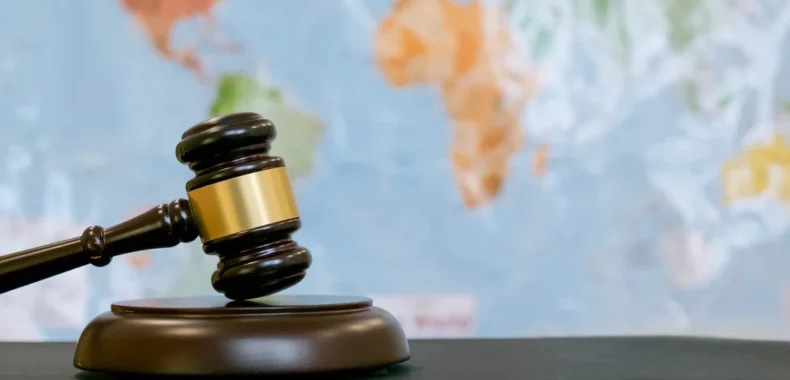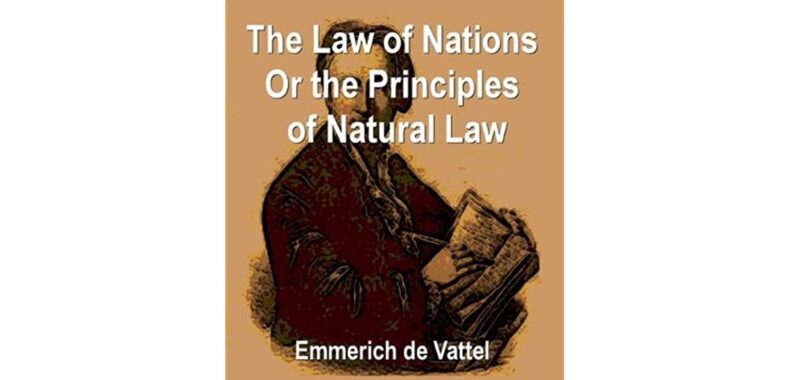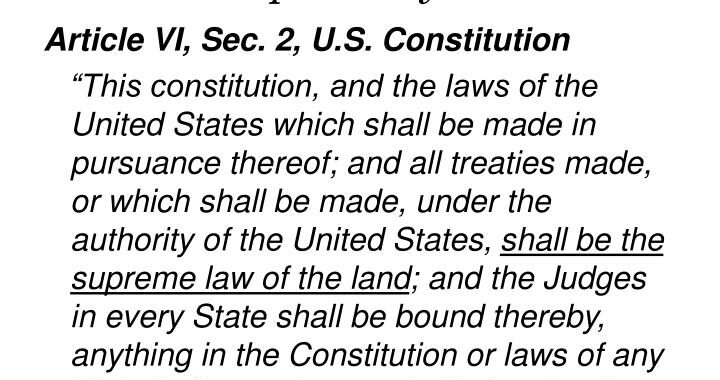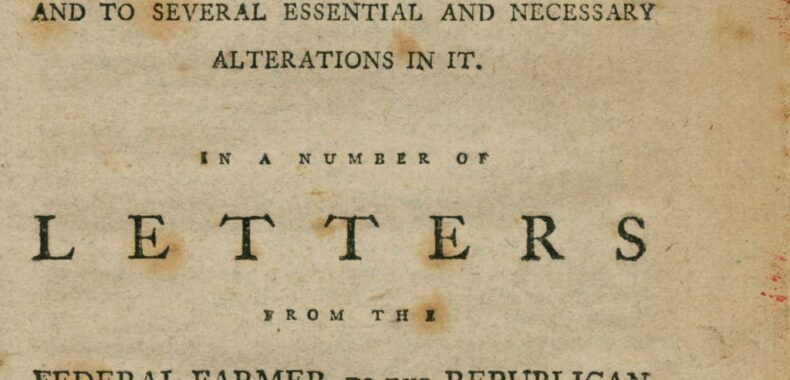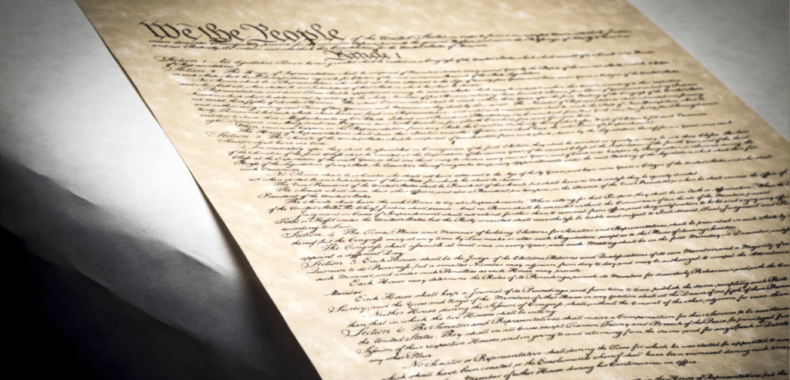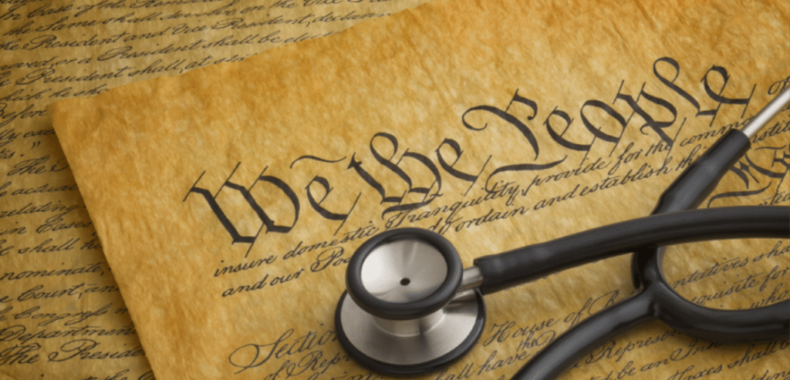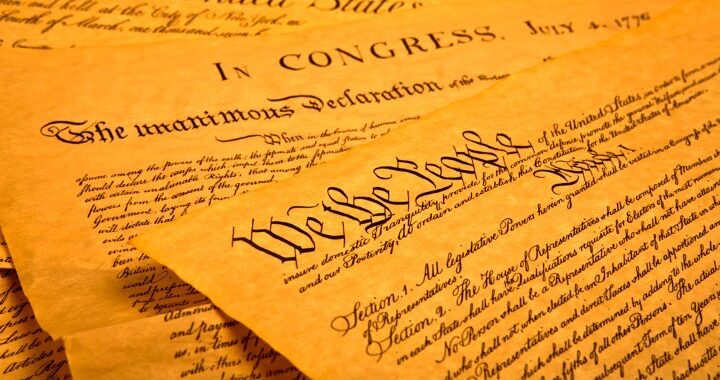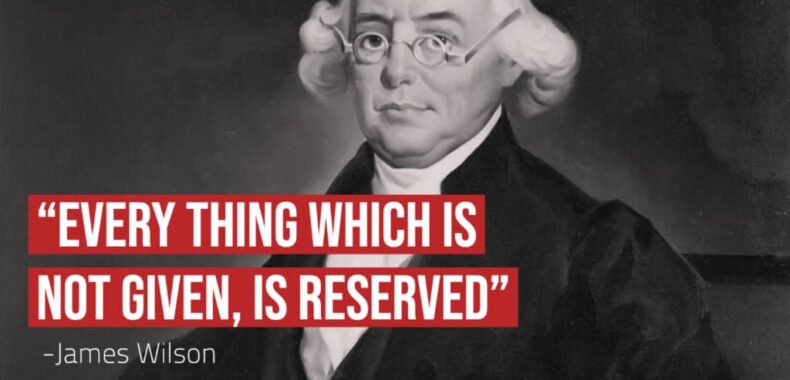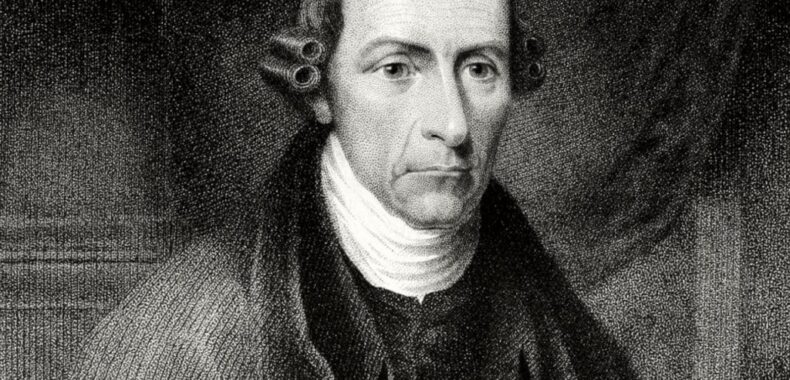A Trio of “Sleeper” Nondelegation Doctrine Challenges
by Randolph J. May For those, like me, who harbor hopes that abuses of authority by administrative agencies might be curbed, a meaningful revival of the nondelegation doctrine has been ...
Read more.Understanding the Constitution: The Power to Restrict Immigration
By: Rob Natelson The Constitution doesn’t use the word “immigration.” Those consulting the constitutional debates of 1787–1790 (such as the essays in “The Federalist”) will find no discussion of the subject. ...
Read more.Absolute Federal Supremacy: The Myth That Just Won’t Go Away
By: Mike Maharrey It never goes away – the myth of absolute federal supremacy. I got an email from a Tenth Amendment Center volunteer in Illinois last week. He has been ...
Read more.The Federal Farmer: The Constitution Would Lead to a Complete Consolidation
By: TJ Martinell During the debates over ratification of the Constitution, one of the most influential and important series of papers were written by the Federal Farmer, an anti-federalist who forcefully ...
Read more.The ideas that formed the Constitution
By: Rob Natelson Who created the ideas behind the U.S. Constitution? The history books relate how the Constitution was composed by its 55 “framers” from May 25 to Sept. 17, 1787. ...
Read more.When the feds violate the Constitution, should we blame the Constitution?
By Publius Huldah In Rob Natelson’s paper [link], “The Solution is a Convention of the States”, he makes claims about what our Framers said is the purpose of amendments to our ...
Read more.Necessary is Supposed to Mean Necessary
By: Michael Boldin When the Constitution was ratified, the word necessary meant, well, necessary. But in the dystopian “future” we live under today, words don’t mean what they actually mean. They ...
Read more.Con-Con Proponents Try to Force Congress to Call a Constitutional Convention
by Christian Gomez Across the political spectrum, 82 percent of likely U.S. voters “have at least a somewhat favorable opinion of the Constitution.” That is according to a nationwide telephone and ...
Read more.James Wilson Delivers “State House Yard Speech” in Favor of the Constitution
By: Dave Benner On October 6, 1787, eminent Pennsylvanian James Wilson delivered his famous “State House Yard Speech” in support of the Constitution in Philadelphia. On the dawn of the first ...
Read more.Patrick Henry Warns of a “Great and Mighty Empire”
By: TJ Martinell On June 5, 1788, Patrick Henry gave a speech at the Virginia Ratifying Convention warning that “consolidation” – centralizing of power – would turn the United States into a dangerous ...
Read more.